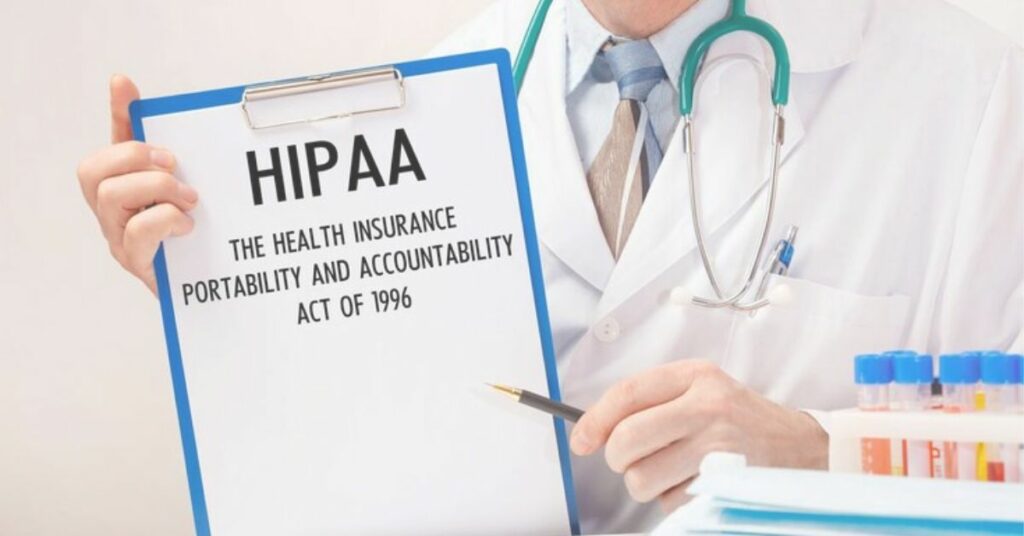The Health Insurance Portability and Accountability Act (HIPAA) was enacted in 1996 to protect the confidentiality of patient health information. The HIPAA Privacy Rule establishes national standards for the protection of PHI. The HIPAA Security Rule sets forth requirements for ensuring the security of electronic PHI.
It’s no secret that data breaches are becoming more and more common. In fact, it seems like hardly a week goes by without news of another major company being hit by hackers.
While these incidents are certainly caused for concern, they also serve as a reminder of how important it is for businesses to take steps to protect their data. And one of the most important things businesses can do in this regard is to ensure compliance with the Health Insurance Portability and Accountability Act (HIPAA).
HIPAA is a federal law that sets forth strict rules for handling protected health information (PHI). PHI includes any data that can be used to identify an individual, such as names, Social Security numbers, and medical records.
The law applies to any business that deals with PHI, including healthcare providers, insurance companies, and even businesses that simply process payments for healthcare services. HIPAA requires these businesses to take steps to safeguard PHI from unauthorized access, use, or disclosure.
Failure to comply with HIPAA can result in significant fines and penalties, not to mention the damage to a company’s reputation that can come from a data breach.
Read Also: Why is HIPAA Compliance Necessary for Healthcare App?
Aspects of HIPAA Compliance Organizations must Know

There are many different aspects to HIPAA compliance, and organizations must take care to ensure that they are meeting all of the requirements. Some of the key areas of focus for HIPAA compliance include:
- Ensuring the confidentiality, integrity, and availability of patient health information
- Implementing physical, administrative, and technical safeguards to protect patient health information
- Establishing policies and procedures for the proper handling of patient health information
- Training employees on HIPAA compliance requirements
What do Businesses Need to Know about HIPAA?
So, what do businesses need to know about HIPAA and data security? Here are some key points:
Know the Rules
The first step in complying with HIPAA is to make sure you understand the law’s requirements. HIPAA is complex, and there are a lot of details that you need to be aware of.
You should also consider working with a lawyer or consultant who specializes in HIPAA compliance. They can help you understand the law’s requirements and make sure you’re taking the necessary steps to protect your data.
Implement Physical and Technical Safeguards

HIPAA requires businesses to implement physical, technical, and administrative safeguards to protect PHI.
Physical safeguards are measures to protect data from physical threats, such as fires, floods, and theft. Technical safeguards are measures to protect data from electronic threats, such as hacking and viruses. Administrative safeguards are procedures and policies for managing data security, such as employee training and incident response plans.
There are a number of specific requirements for each type of safeguard, so it’s important to familiarize yourself with the details. However, some general best practices include:
- Restricting physical access to data center facilities and servers
- Encrypting data in transit and at rest
- Implementing strong authentication measures, such as two-factor authentication
- Developing comprehensive incident response plans
- Training employees on data security procedures
Read also: Digital Transformation in Healthcare
Perform Regular Risk Assessments
HIPAA requires businesses to perform regular risk assessments to identify threats to PHI and assess the adequacy of their safeguards.
Risk assessments should be conducted on a regular basis, and they should be comprehensive. They should include an assessment of both physical and technical threats, as well as an evaluation of the sufficiency of your safeguards.
Be Prepared for a Breach

Despite your best efforts, there’s always a possibility that PHI could be breached. So, it’s important to be prepared in the event that such an incident does occur.
HIPAA requires businesses to have in place procedures for responding to a data breach. These procedures should include steps for notification, investigation, and remediation.
Additionally, you should have insurance in place that will cover the costs associated with a data breach, such as notification expenses, credit monitoring services for affected individuals, and any fines or penalties that may be imposed by regulators.
Understand the Consequences of Non-Compliance
As mentioned earlier, failure to comply with HIPAA can result in significant fines and penalties. The government can impose civil penalties of up to $50,000 per violation, with a maximum of $1.5 million per year for repeated violations.
Criminal penalties can also be imposed for willful violations of HIPAA. These penalties can include fines of up to $250,000 and up to 10 years in prison.
In addition to financial penalties, non-compliance with HIPAA can also damage a company’s reputation. Data breaches can result in negative publicity, and they can erode customer trust.
Compliance is not optional; it’s mandatory for all businesses that handle PHI. Failure to comply with the law can result in significant fines and penalties, as well as damage to your company’s reputation. By understanding the law’s requirements and implementing appropriate safeguards, you can protect your data and avoid the consequences of non-compliance.
Read Also: How to Choose the best HIPAA-Compliant Cloud Storage?
Conclusion:
By following these tips, you can ensure that your business is in compliance with HIPAA and avoid the penalties associated with non-compliance.
QSS Technosoft Inc has been providing HIPAA compliance services to clients across the globe. We have a team of experienced and certified professionals who can help you with all aspects of HIPAA compliance, from risk assessment to incident response.
We are proud to mention that our work has been recognized by leading B2B reviews and research platforms like GoodFirms, Clutch, MirrorView, and many more.
If you have any questions about our HIPAA compliance services or would like to learn more about how we can help you ensure compliance with HIPAA, contact us today. We offer a free initial consultation to all new clients.


HIPAA and Data Security: What Businesses Need to Know?